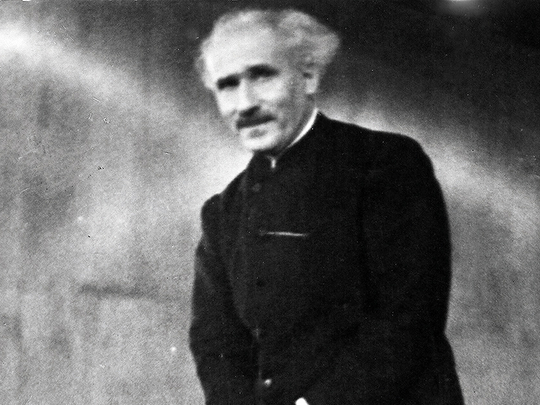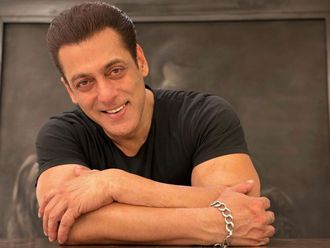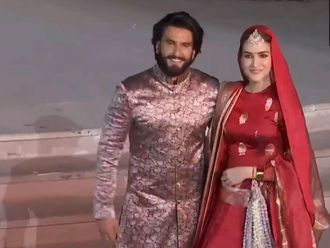
Toscanini: Musician of Conscience
By Harvey Sachs, Liveright, 923 pages, $40
On the night of June 30, 1886, Arturo Toscanini — recently turned 19 — arrived, barely on time, at the imperial opera house in Rio de Janeiro, where the touring company for which he was the principal cellist was about to perform Aida. Pandemonium. The unpopular lead conductor had resigned in a huff. His unpopular replacement had been shouted off the podium by the audience. There was no one else. Toscanini, who was also assistant choral master, was thrust forward by his colleagues. “Everyone knew about my memory,” he would recall, “because the singers had all had lessons with me, and I had played the piano without ever looking at the music.” He was handed a baton and just started to conduct. A triumph! Typical of the glowing reviews: “This beardless maestro is a prodigy who communicated the sacred artistic fire to his baton and the energy and passion of a genuine artist to the orchestra.” For the remaining six weeks of the tour, Harvey Sachs tells us in his biography Toscanini: Musician of Conscience, the maestro led the orchestra in 26 performances of 12 operas, all from memory. No one offered him a raise, and it didn’t occur to him to ask for one.
It was almost 68 years later, in April 1954, that he conducted his final concert, an all-Wagner programme, at Carnegie Hall. He was 87, and decades earlier had established himself as the world’s most famous conductor — the world’s most famous musician; a “genius”, in fact, alongside such names as Einstein, Picasso and, with a backward glance, Thomas Alva Edison. Nor was this a new notion: Back in the conservatory in Parma, his hometown, “Arturo’s fellow students teased him by calling him Geni, the dialect word for ‘genius’.”
Genius or not, he unquestionably was a prodigy. At school he had been assigned the cello as his instrument, and he quickly mastered it — by the time he was 14 he was playing in the Parma opera company’s orchestra. He taught himself to play the piano, the violin, the double bass. He sang, he composed, he organised and led groups of his fellow students. Everyone was aware of his astounding photographic memory and his immense powers of concentration. In his final year he was named the school’s outstanding graduate, and he was liked as well as admired. “When I look back at the years of my adolescence,” he would reminisce, “I don’t remember a day without sunshine, because the sunshine was in my soul.”
Music happened to him by accident. His good-natured if rather feckless father, Claudio — whose heart lay in his years of campaigning with Garibaldi’s army of the Risorgimento, and who made a somewhat precarious living through tailoring — and his cold and distant mother, Paola, were “musical”, but not exceptionally so. It was an elementary-school teacher who spotted little Arturo’s strong response to music and advised his parents to send him to Parma’s music conservatory, where once he was accepted as a live-in student all his expenses were taken care of — a boon to the financially strapped family.
Word of Toscanini’s South American success quickly got around, and soon he was a busy itinerant opera conductor: Turin, Bologna, Venice, Genoa, Palermo, Pisa, Rome — he was working everywhere, though undoubtedly his greatest satisfaction in those early days was playing cello for Verdi, his hero, at the 1887 premiere of Otello. After some years at Turin’s Regio Theater, where in 1895-96 he conducted the world premiere of La Boheme (he’d done the same for “Pagliacci” in Milan) and the first Italian production of “Gotterdammerung”, he was wooed away, inevitably, by La Scala, where he reigned on and off until in 1908 he left Italy to lead the Metropolitan Opera in New York. In Milan he had worked with (and disciplined) the young Caruso and Chaliapin, had forced audiences to accept darkened auditoriums, instituted a bitterly opposed policy of no encores, and had the orchestra playing in a pit rather than at stage level. And he had married.
When Arturo met Carlotta De Martini in 1895, he was 28 and she was 18, a pretty, vivacious girl whom he pursued with all his intensity and tenacity. They married in 1897, and he liked telling people that their son Walter was born exactly nine months after the wedding: “in tempo, like a good conductor.” Two girls and another boy would follow. You could say that it was a successful marriage but not a happy one. Arturo and Carla would stay together until her death in 1951, both of them loyal to the idea of family but increasingly distanced from each other emotionally. Her messiness maddened him (“For 41 years I’ve suffered from this disorder of hers!!!”), and his serial philandering deeply wounded her.
One of the things that led Sachs to write a second biography of Toscanini, more than twice as long as his first (published in 1978), was the new availability of huge archives of documents and letters — in 2002 he edited The Letters of Arturo Toscanini. The letters cover an immense range of musical, political and personal matters, but the most astonishing ones are passionate love letters.
In 1933, after several extraordinarily successful seasons at the Bayreuth Wagner festival — Toscanini was the first non-German conductor to perform there — he informed Winifred Wagner, Wagner’s English daughter-in-law now in charge (and a close friend of Hitler’s), that given the conditions obtaining in Germany since the Nazis had taken over earlier that year, and despite a flattering personal letter from Hitler himself, he would not be returning. “For my peace of mind, for yours, and for everyone’s, it is better not to think any longer about my coming to Bayreuth.” Nothing could better demonstrate both his unbending loyalty to principle and the astounding position he held on the world stage.
In the same spirit, early in 1938, after having triumphed for the third time at the annual Salzburg Festival, he decided that with the Germans poised to overrun Austria, he would not return. Mussolini again had his passport impounded, and again worldwide indignation forced the Duce to change his mind. On the very day that the passport was suddenly returned, the Toscaninis left Milan for America. “To flee, to flee — that was the consuming thought!” he wrote to Ada. “To flee in order to breathe freedom, life!”
He would not see his country again for eight years. Sachs tells us that when, at 79, he presided over the postwar reopening of La Scala, tens of thousands gathered outside the opera house and millions listened around the world: “For Toscanini, it was the culminating moment of his life as a musician.” Yet even at this moment of exaltation he kept his sense of humour. As he was walking from the stage entrance into the auditorium, someone offered to hang up his hat for him. “Thank you,” he replied, “but I’m not the prima donna — and I’m not even the baritone.”
The trajectory of Toscanini’s artistic path constitutes the main body of Sachs’s biography, and he gives us an extremely thorough chronicle of his activities and achievements. Here are the early galvanising effects he had on opera in Italy and at the Met (where he led the world premiere of Puccini’s “La Fanciulla del West” and the American premiere of “Boris Godunov”); the endless triumphs in Europe and South America; the revitalisation of the New York Philharmonic; and on to the final 17 years leading the NBC Symphony Orchestra. Sachs frequently steps over the line and in his ardour for his subject and addiction to detail tells us more than most of us need to know.
He also gives us the man, with all his contradictions. Famous for his tantrums in rehearsal (breaking and flinging batons, shouting imprecations at musicians he found lazy or unprepared), he was unfailingly kind in person. He never fired musicians, even those he disliked; he was a warm host; and he was personally generous — donating his services and his orchestra to countless causes and instructing Carla to help out any musician in need of funds, no questions asked. Money was never of importance to him. The evidence makes it clear that everything he did was in the service of music, not of ego or success. He gave almost no interviews, had no press agent, shied away from applause, and conducted calmly and simply — he admired Leonard Bernstein but deplored what Sachs tactfully calls Bernstein’s “emotive podium style.” Typical of his lack of self-regard are remarks such as “Every time I conduct the same piece I think how stupid I was the last time I did it,” and his response after his retirement to someone who addressed him as Maestro: “Do not call me Maestro. I am no longer a maestro.”
His self-deprecation is especially telling in light of the torrent of praise that from the start he received from almost every contemporary conductor. Let Pierre Monteux stand for all: “I had before me, simply, a man of genius, a conductor such as I had never seen in my life, a true revelation in the art of conducting and interpretation.” And from Stravinsky, although he found Toscanini’s choice of repertory sadly old-fashioned: “I have never encountered in a conductor of such world repute such a degree of self-effacement, conscientiousness and artistic honesty.”
For those who want to comprehend how Toscanini inspired and affected the musicians who played or sang for him, I recommend B.H. Haggin’s “Arturo Toscanini: Contemporary Recollections of the Maestro,” in which almost a score of his musicians speak about him. It’s a unique and moving tapestry of fear, awe and devotion, though Caruso anticipated them all when in 1909 he said, “Experience has taught me that I don’t know if I know a role until I sing it with the Grande Omino [great little man]!”
Of course there were naysayers along the way, particularly about matters of repertory. Toscanini had been a trailblazer in his earlier years, championing composers like Berlioz, Debussy, Ravel, Puccini and Strauss. Later, he dabbled in Bruckner and Shostakovich but resisted Mahler, Bartok, Schoenberg, “Wozzeck.” “I can’t get modern music to enter either my head or my heart! I’m too old, and my faculties have calcified,” he wrote to Ada. He would instead “keep conducting the same music!” — Beethoven, Wagner, Brahms, Verdi — and continue to deepen his understanding of it.
On the other hand, he approved of many of the young postwar artists. He had launched Renata Tebaldi on his return to La Scala in 1946, and he very much admired David Oistrakh and Kathleen Ferrier (“that divine voice”), while in 1951 he had this to say: “I find this Callas woman very good, a beautiful voice and an interesting artist, but her diction is unintelligible. ... You must hear every word, otherwise it’s a concert.” Nothing had changed since in 1908 he offended the young diva Frances Alda by asking her politely, after a rehearsal of Louise, “In what language were you singing?”
By the postwar period, his fame and authority were so great that nothing could get between him and his adoring public, a vast popularity that had been pumped up by the blaring publicity machine of NBC and RCA, whose president, David Sarnoff, had lured him into leading the new NBC Symphony Orchestra. Toscanini was news — three times on the cover of Time; subject of spreads in Life; received by presidents. Yet he was never grand when off-duty, as when in 1950 on a six-week tour across America with his orchestra some of his musicians spotted him coming up the ski tow in Sun Valley. (He was 83.) One of the more daring of them said, “Maestro, you are a brave man.” Without hesitation he replied, “I’ve never been afraid of anything in my life.”
–New York Times News Service
Robert Gottlieb’s most recent book is “Avid Reader,” a memoir. He has been editor-in-chief of Simon & Schuster and Alfred A. Knopf, and the editor of The New Yorker.









